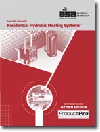FDP Continuing Education Benefits
Paul Ridilla
Last month we stressed the importance of giving every employee an opportunity to become a boss through an FDP (foreman development program). Do not overlook the critical need for ongoing FDP training for your present supervisors. In addition to providing new methods and techniques, your coaching team definitely needs constant reminders of the motivational value of effective communication and human relations.
Last year's articles, titled "Make More in '04, Keep Score," provided you with these guidelines and scorekeeping techniques to measure and reward each foreman's team-building efforts:
-
Jobsite morale - Employees get more done when work is fun! It's called momentum because the more they do, the more they make; and the more they make, the more they will do.
Bragging ambassadors - Proud and happy crew members will go home bragging about the boss and their jobs. Their relatives and acquaintances will come to you for that same opportunity.
Zero turnover - Your exit interview will show you who or what the cause for losing a good employee was.
Monthly reviews on skill inventory progress, jobsite productivity and wage increases.
Timely and accurate jobsite paperwork regarding job logs, cost coding, signed work orders and CYA notices.
Keeping Score
Unfortunately, many contractors look at keeping score as a negative de-motivator. Keep in mind that you are not only measuring and recording your foremen's faults or mistakes, you are also scoring their positive performance and everything else that you are buying. Your foremen are suppliers of a service that you need to define (on paper) and negotiate a fair wage or salary for what they provide.Most contractors call this a job description, but I recommend using it as a purchase order or labor-only subcontract:
- JOB DESCRIPTION
Mechanical Contractor's Working Job Foreman
-
1. Provide safe site: safety equipment, safety meetings, notes
2. Code compliance: plans and specs, subcontract, local codes
3. Quality product: company image, personal pride, clean job
4. Job schedule: coordination, documentation, detours
5. Planning: pre-job, weekly, daily assignments, phone calls
6. Subcontractor schedules: coordination and control, quality
7. Time control: efficiency, coffee breaks, starts and stops
8. Material control: lead time, inventory, handling devices
9. Ladders: scaffolding, boom trucks, platforms, railings
10. Proper tools: every employee, care and use, sharpening
11. Trucks and equipment: selection, use and maintenance, clean
12. Customer relations: inspections, meetings, trade-offs
13. Utility company coordination: temporary and permanent tie-ins
14. Extras: change orders, documentation, signed, materials
15. Job log: time sheets, cost codes, as-builts, letters
16. Leadership: training, motivation, merit reward, image
17. Company rules: discipline and documentation, your rules
18. Job morale: smile, grievances, counseling, respect
19. Crew sizes: job assignments, overtime control, co-op
20. After-hours training: code, prints, tools, welding
Always keep in mind that anyone good wants to be noticed, scored and rewarded. If you have a foreman who resents being measured, you need to find out why.
Naturally these job descriptions will vary with each foreman's particular circumstances, desires and abilities:
- Some foremen work under another general foreman and only have journeymen in their crews.
- Some foremen work alone or with one helper and are in charge of that particular jobsite.
- Some foremen must hire and train their own employees.
- Some foremen run a fab shop.
- Some foremen work away from home with different local union representatives.
Providing Additional Training
As you discuss their duties and responsibilities, along with their scorecards, you will open the door for remedial or additional FDP training. Some of you will be amazed at how many responsibilities you expect your foremen to perform, yet no one ever explained "how to do it." You'll learn how critical it is to your team-building efforts and bottom-line profit.You can review your own foremen's job descriptions or go back and analyze each item on the sample I've enclosed. You should delete any item that is not pertinent to that one foreman's duties and add other duties or responsibilities that you want him or her to perform. Your foremen should also negotiate these changes to keep you both on the same track, since this job description becomes your measuring stick.
There are several options for any of you who do not already have an active FDP in your company:
-
1. Not to have one is definitely not an option. Being an effective coach and team builder is critical for any foreman who must supervise your employees. Your foremen literally have your whole world in their hands.
2. You can send your foremen to one of my seminars or have me come to you on an in-company basis to concentrate on your specific situations.
3. Whoever is in charge of all of your foremen - general superintendent, project manager, yourself, etc. - can negotiate individual job descriptions, motivate and measure your foremen and monitor their scorecards to identify specific needs for critical training.
Looking for a reprint of this article?
From high-res PDFs to custom plaques, order your copy today!




